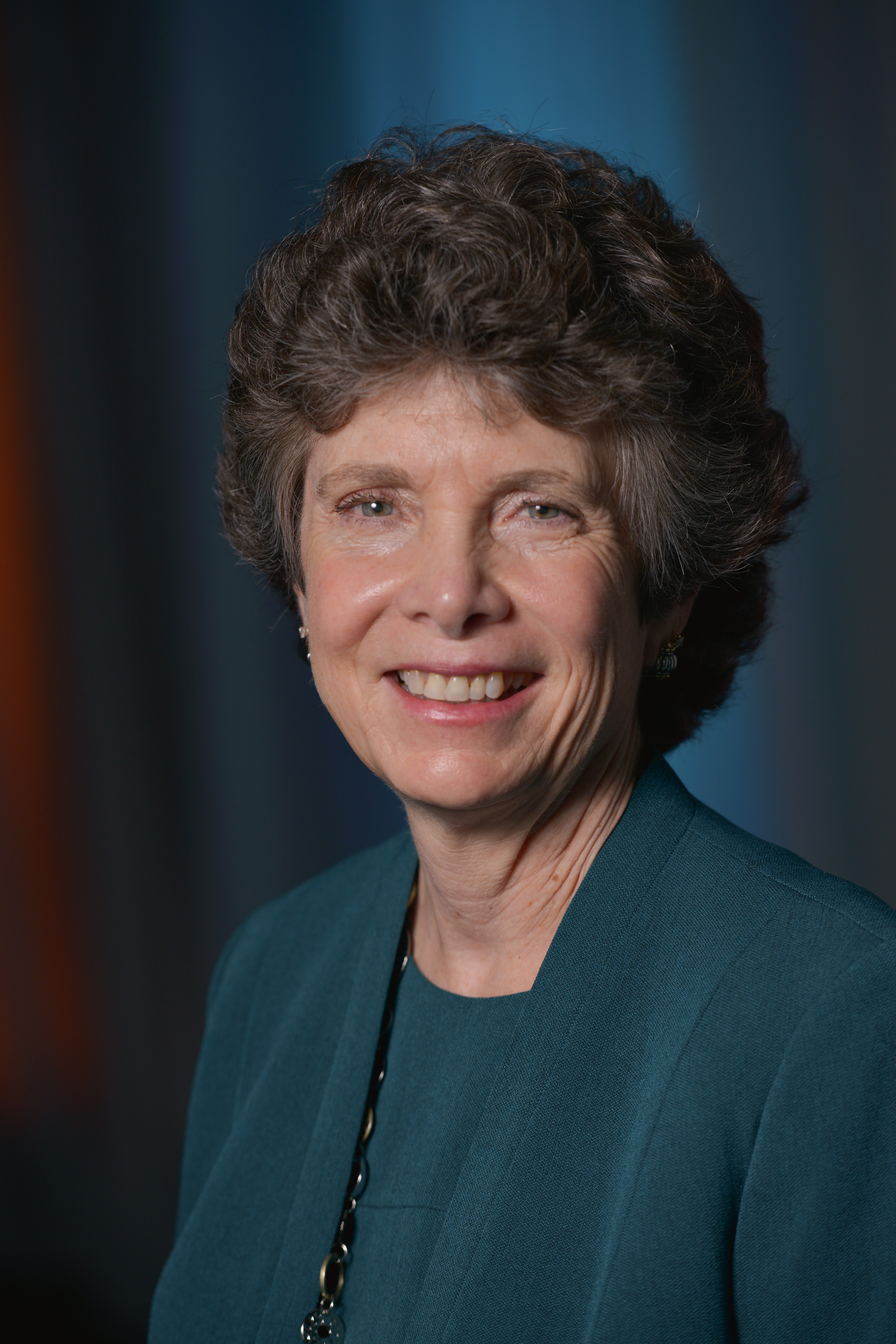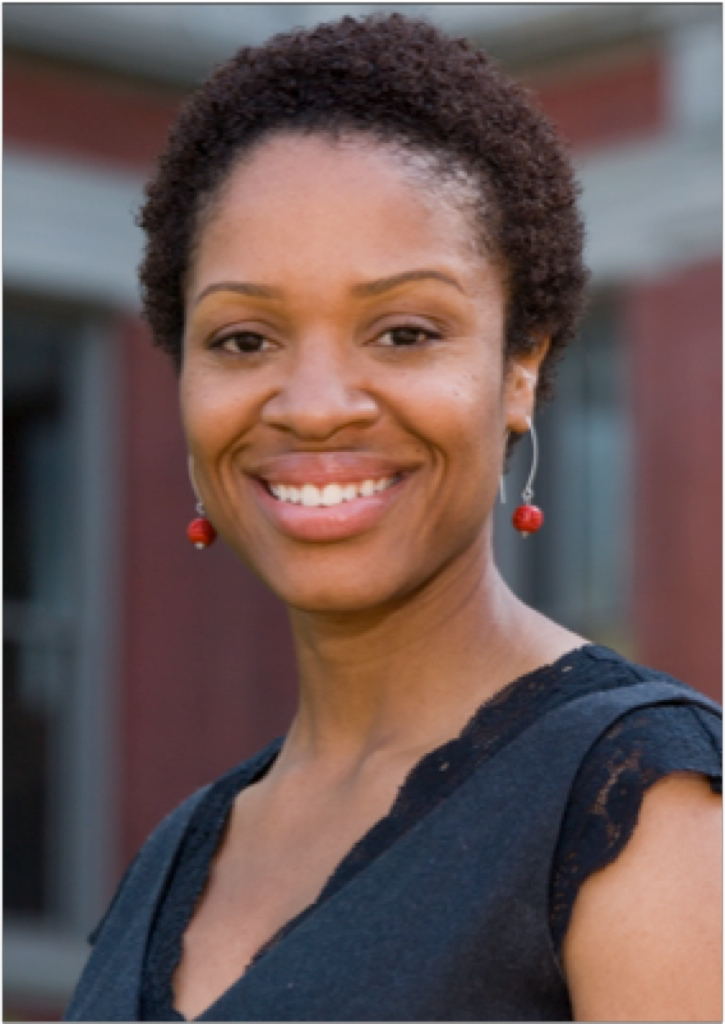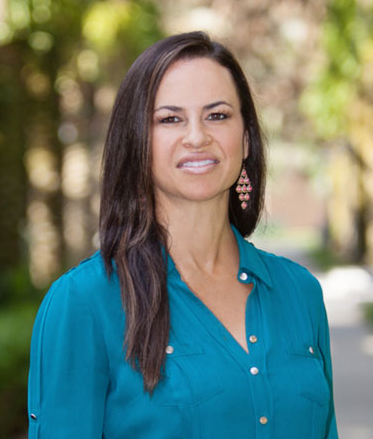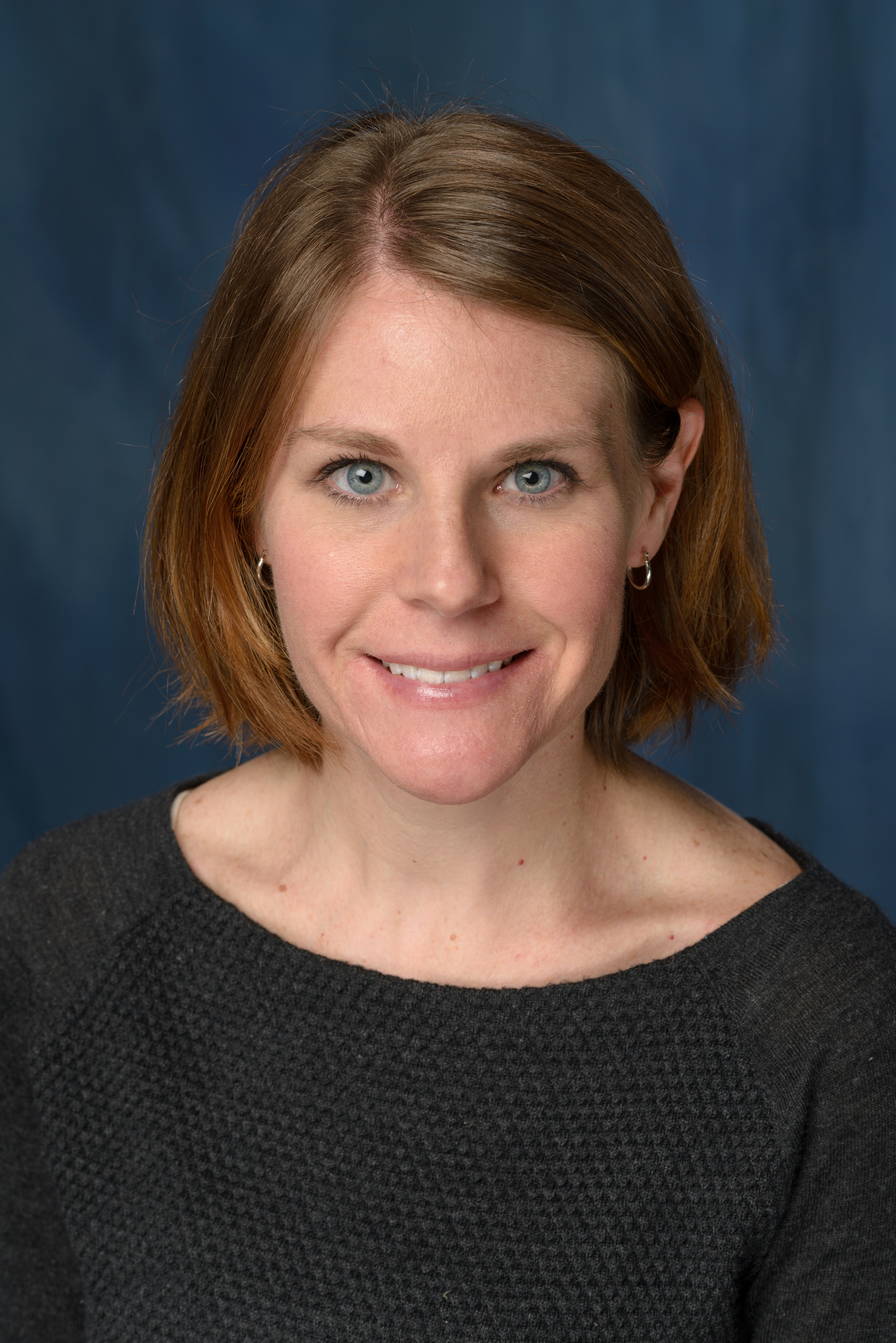Reshaping the Department of Speech, Language, and Hearing Sciences
On her first day of kindergarten in suburban Philadelphia, Susan Nittrouer arrived at school with her grandmother. Susan wore a dress that her parents had purchased for her in Switzerland and her grandmother spoke to the teacher with a Yiddish accent. Susan also spoke to the teacher, in English, but she had a communication disorder that made it difficult for her to articulate her words. When Susan spoke, her teacher had a look of kindness, but also panic: She put together the European dress, a grandmother speaking Yiddish and Susan’s articulation problems and concluded that Susan was speaking in the foreign language of an Eastern European country!
This type of experience was to be repeated over and over during her childhood. Several years of speech therapy solved the articulation problem, and during the time of her treatment, Susan saw the movie Miracle Worker. In a TEDx talk about her experience, Susan explains how she was influenced: “Ann Sullivan brought to Helen Keller the very essence of language. What a power! What a power it is to bring language to a child who was previously unable to communicate. When I saw that movie, I wanted that power. That’s when I decided to become a teacher of the deaf, to help deaf children learn spoken language.”
 Susan Nittrouer, Ph.D., not only obtained the training she needed to achieve her goal of teaching deaf children, she also is now recognized for changing the paradigm about understanding how speech is acquired and developed in children. She will soon arrive at UF as a professor and chair of the department of speech, language, and hearing sciences in the College of Public Health and Health Professions, moving here from The Ohio State University, where she is a professor and director of research in the department of otolaryngology – head & neck surgery.
Susan Nittrouer, Ph.D., not only obtained the training she needed to achieve her goal of teaching deaf children, she also is now recognized for changing the paradigm about understanding how speech is acquired and developed in children. She will soon arrive at UF as a professor and chair of the department of speech, language, and hearing sciences in the College of Public Health and Health Professions, moving here from The Ohio State University, where she is a professor and director of research in the department of otolaryngology – head & neck surgery.
This issue of On the Same Page is the story of some of the people involved in giving new shape to the department of speech, language, and hearing sciences, including both new and existing faculty. Dr. Nittrouer will be joined by two new faculty members — Ianessa Humbert, Ph.D., and Emily Plowman, Ph.D., who both bring established research programs in different aspects of dysphagia and will build on the strength of existing faculty members, such as Karen Hegland, Ph.D, who has received a new National Institutes of Health grant to support her research on airway protection in patients with Parkinson’s disease.
For many years, the university was home to two departments that shared the mission of training health professionals in the fields of audiology and speech and language pathology. The department of communicative disorders was housed in the College of Public Health and Health Professions, whereas the department of communication sciences and disorders resided in the College of Liberal Arts and Sciences. In 2008, as the great recession exerted a devastating toll on state revenues, UF faced dramatic cuts in its state budget. Each dean was asked to propose “vertical cuts” rather than “across the board” reductions. The notion was that each college would absorb its share of the budget shortfall by closing a program that was least central to its mission. The dean of the College of Liberal Arts and Sciences proposed closing CSD, but the PHHP dean proposed an alternative: a merger of the two departments into one that would maintain the academic and clinical programs of both departments but do so at a savings of $1 million per year. This proposal was accepted, and the CSD faculty from “up the hill” joined their CD colleagues in the Health Science Center to form a merged unit with a new name, the department of speech, language and hearing sciences.
Returning to Dr. Nittrouer’s journey, she began tutoring young deaf children as a college student at West Chester University, 35 miles outside of Philadelphia. She received her master’s degree in education of the deaf from Smith College in 1975, and taught deaf children for five years, focusing on spoken language intervention. Through that work, she became intensely interested in the challenge faced by these children of “trying to develop a phonological system through an impaired auditory system.” This growing fascination with the question of how a deaf child — or any child, for that matter — can possibly learn to appreciate the complex code that is spoken language prompted her to return to university for a Ph.D. in speech and hearing sciences, which she obtained at the City University of New York. This program appealed to her because it provided training in both speech and hearing, and how they connect. Following a postdoctoral fellowship at Haskins Laboratories in New Haven, Connecticut, she launched her research career investigating how children learn to recognize speech, circling back to the goal of giving deaf children language. “Without language,” Dr. Nittrouer explains, “you’re so closed off from everyone, and when you get language the world opens up.”
Dr. Nittrouer currently leads two NIH projects funded by the National Institute on Deafness and Other Communication Disorders: a study of the early development of spoken language in children with hearing loss and a study of how children develop phonological abilities, with the goal of understanding the causes of language problems in disorders such as dyslexia and attention deficit hyperactivity disorder. In her new role as department chair, Dr. Nittrouer hopes to build new interdisciplinary partnerships between the department and other campus units. “Human communication is a component of clinical training and research in many disciplines, including neuroscience, engineering and psychology,” she said. “It is my goal to enhance interactions across these fields to advance our scientific understanding and improve outcomes for individuals with communication disorders.”
Dr. Ianessa Humbert and Dr. Emily Plowman, who will both join the department as associate professors, focus on dysphagia, or swallowing disorders, which affect an estimated 15 million Americans. Affected individuals often include those with neurological disease, stroke or head and neck cancer. Dysphagia can lead to aspiration pneumonia, dehydration and malnutrition, and it can have a devastating effect on patients’ quality of life and may even lead to death.
 Dr. Humbert’s path to her professional career had its roots in family circumstance and culture, but blossomed as a result of her intellectual and scholarly pursuits combined with a strong commitment to clinical application. Growing up in Toronto as the daughter of first-generation Jamaican immigrants, she was told by her parents that education was important in its own right, but that a major goal of education was to get a good job. Moving to Florida in high school, she was imbued with the idea that her college major should combine something she was interested in with something that would lead to a solid career. Knowing that Ianessa had a tremendous interest in language, and would always correct people in their use of English, her older sister suggested that she should figure out something that would employ her for teaching speech and language. This suggestion, which led to a visit to a guidance counselor at USF where she attended college, would prove to be life-changing: “You should consider speech pathology,” said the counselor.
Dr. Humbert’s path to her professional career had its roots in family circumstance and culture, but blossomed as a result of her intellectual and scholarly pursuits combined with a strong commitment to clinical application. Growing up in Toronto as the daughter of first-generation Jamaican immigrants, she was told by her parents that education was important in its own right, but that a major goal of education was to get a good job. Moving to Florida in high school, she was imbued with the idea that her college major should combine something she was interested in with something that would lead to a solid career. Knowing that Ianessa had a tremendous interest in language, and would always correct people in their use of English, her older sister suggested that she should figure out something that would employ her for teaching speech and language. This suggestion, which led to a visit to a guidance counselor at USF where she attended college, would prove to be life-changing: “You should consider speech pathology,” said the counselor.
And so she did. After obtaining her bachelor’s degree in speech language pathology, Dr. Humbert went on to obtain her M.S. and Ph.D. degrees in speech language pathology from Howard University. There she had the good fortune to work at NIH for her doctoral research. After sending emails to as many NIH contacts as she could find in her field, Dr. Christy Ludlow, chief of the laryngeal and speech section at the National Institute of Neurological Disorders and Stroke, hired her under a Predoctoral Intramural Research Training award. “The experience at NIH,” recounts Dr. Humbert, “where I essentially worked on my Ph.D. thesis full-time for two years under Dr. Ludlow, was extraordinary. It provided me with the best possible foundation for building an independent research career. As it turns out, my dissertation focused on a very hot topic in swallowing research: the effects of electrical stimulation on swallowing physiology. These studies served as a launch pad for several subsequent studies, collaborations, manuscripts and grants and have deeply influenced my approach to swallowing rehabilitation and dysphagia management.”
Following completion of her Ph.D., Dr. Humbert took a postdoctoral fellowship at the University of Wisconsin, where she conducted research on swallowing neurophysiology in healthy aging and in early Alzheimer’s disease as well as studies of water and fat content in the tongue. During this time, at a presentation of her work at a national dysphagia meeting, she was approached by faculty at Johns Hopkins who were interested in her work. A year later, she was recruited to Hopkins as an assistant professor in the department of physical medicine and rehabilitation at The Johns Hopkins University School of Medicine. There, she advanced her research and founded the Swallowing Neurophysiology Laboratory, in which she and her team study the physiological mechanisms of swallowing disorders and the development of rehabilitation strategies. Her interests center on the peripheral and central control of swallowing in normal and impaired function and understanding how principles of motor learning can be applied. Dr. Humbert’s research has been supported by grants from the National Institutes of Health, the American Heart Association and the American Speech-Language-Hearing Foundation since 2005. Her work was recognized with the Award for Early Career Contributions in Research from the American Speech-Language-Hearing Association in 2010. She is also the author of a clinical resource, “The Swallowing Pocket Guide,” that contains detailed pictures, physiology summaries and nerve and muscle names and functions.
 Dr. Plowman’s path to her new position began literally on the other side of the globe. Growing up in Western Australia, the daughter of an economics professor at the University of Western Australia, Emily originally had aspirations to become a stockbroker and entered business school. After completing her first year, however, she realized this career path would not “feed the soul” and craved a career that would allow her to help others so entered a degree in speech-language pathology. In the course of her studies and early work as a speech-language pathologist, Emily developed a particular interest in swallowing: “I vividly recall my undergraduate neuroanatomy professor telling the class that swallowing represented the most complex system in the human body, requiring the finely timed coordination of over 26 pairs of muscles and five cranial nerves for a process occurring in less then one-and-a-half seconds. This complexity of the swallow system very much intrigued me. Then, in my first job, dysphagia represented approximately 75% of my caseload (as is typical in acute medical care settings). I very quickly found myself questioning practice patterns and becoming frustrated with the lack of evidence-based practice and ‘gaps’ in our knowledge base. At this very early point in my clinical career I knew I wanted to become a clinical researcher and contribute to advancing evidence-based practices for dysphagia evaluation and treatments in neurogenic populations.” So, at the age 23 and armed with only two suitcases, Emily left Australia to pursue a Doctorate in Rehabilitation Sciences at the University of Florida in 2001.
Dr. Plowman’s path to her new position began literally on the other side of the globe. Growing up in Western Australia, the daughter of an economics professor at the University of Western Australia, Emily originally had aspirations to become a stockbroker and entered business school. After completing her first year, however, she realized this career path would not “feed the soul” and craved a career that would allow her to help others so entered a degree in speech-language pathology. In the course of her studies and early work as a speech-language pathologist, Emily developed a particular interest in swallowing: “I vividly recall my undergraduate neuroanatomy professor telling the class that swallowing represented the most complex system in the human body, requiring the finely timed coordination of over 26 pairs of muscles and five cranial nerves for a process occurring in less then one-and-a-half seconds. This complexity of the swallow system very much intrigued me. Then, in my first job, dysphagia represented approximately 75% of my caseload (as is typical in acute medical care settings). I very quickly found myself questioning practice patterns and becoming frustrated with the lack of evidence-based practice and ‘gaps’ in our knowledge base. At this very early point in my clinical career I knew I wanted to become a clinical researcher and contribute to advancing evidence-based practices for dysphagia evaluation and treatments in neurogenic populations.” So, at the age 23 and armed with only two suitcases, Emily left Australia to pursue a Doctorate in Rehabilitation Sciences at the University of Florida in 2001.
Dr. Plowman was attracted to pursue her doctorate at the University of Florida because it was extremely strong in dysphagia research and was an interdisciplinary and flexible program that could be tailored around her research interests. She had a specific interest in understanding how the brain circuits respond to neurologic injury and rehabilitation and was able to take the majority of her classes from the neuroscience department in the medical school. In addition, she had great interest in epidemiology and biostatistics and was able to tailor a program that included over 18 credits from the school of Public Health. She “really loved being in classes with non-speech language pathologists such as physical therapists, social workers and physicians and feel this broadened my perspective and ways of thinking and answering critical clinical and research questions."
Also, Dr. Plowman describes an environment at UF in which she “had excellent role models both within and outside my own department, something not typical of a traditional doctoral program. Within my department, I had the great fortune to train under the tutelage of a world leader and icon in the field, Dr. Jay Rosenbek, as well as Dr. Christine Sapienza. Due to the true interdisciplinary nature of the program I also had tutelage and exposure to Drs. Andrea Behrman and Dena Howland from physical therapy and neuroscience, respectively, who were amazing female role models. Both were great teachers, scientists, published extensively and were successful in obtaining external funding. Without question, however, the most memorable professor and mentor to me during the RSD program was neurologist Dr. Michael Okun. He really lit a fire in my belly to be curious, hungry and relentless in my pursuit of knowledge. Dr. Okun was an inspiration to me on how to be a great teacher, mentor, clinician scientist, and on how to care and advocate for our patients who sometimes have no voice.”
Following completion of her Ph.D., Dr. Plowman completed a clinical fellowship at UF Health Shands Rehabilitation Hospital and a postdoctoral fellowship in neuroscience at the Evelyn F. and William L. McKnight Brain Institute of UF, funded by an NIDCD F32 Ruth Kirschstein National Service Award. Following her postdoctoral fellowship, she joined the University of South Florida in 2010, where she directed the Neuromotor Speech and Swallowing Restoration Laboratory.
Dr. Plowman is now excited to return to UF: “Coming back to UF truly feels like coming home to me. I am excited to join forces with my good friend and colleague Dr. Ianessa Humbert, and we have a vision to create a world-class training facility for training the next generation of swallowing scientists. I am also looking forward to being a part of an exciting new center that brings together basic and clinical scientists who study the upper airway, the Center of Respiratory Research for Rehabilitation, and the ability to work as a part of a translational team in this center with Drs. Gordon Mitchell, Paul Davenport, Danny Martin and Karen Hegland.”
Her research goal is to develop novel treatments that improve and maintain respiratory, cough and swallowing functions in individuals with neurological disease, such as Parkinson’s and amyotrophic lateral sclerosis, or ALS. She is also poised to build a new multidisciplinary clinical program for individuals with ALS in conjunction here at UF with colleagues in neurology. Swallowing dysfunction is highly prevalent in individuals with ALS and leads to malnutrition, compromised pulmonary status, pneumonia, increased risk of death, and reduced quality of life and mental well-being. Dr. Plowman currently has five studies in her basic science and human clinical laboratories funded by the NIH and the Veterans Health Administration Office of Rural Health, including the largest clinical trial to date evaluating the impact of exercise treatments on respiratory, cough and swallowing function in ALS. Dr. Plowman received the 2013 American Board of Swallowing and Swallowing Disorders Research Award for her efforts in advancing treatments for ALS.
 The expertise of Drs. Humbert and Plowman will be a wonderful complement to the work of Karen Hegland, Ph.D., CCP-SLP, an assistant professor in the department of speech, language, and hearing sciences. Dr. Hegland is a quadruple Gator, having received her bachelor’s, master’s and doctoral degrees from UF as well as her postdoctoral training in respiratory physiology. “My father was Navy, so the longest I lived anywhere as a kid was 3 years. When I began as an undergraduate at UF, I was happy to be in one place for four whole years — little did I know how long it would really be. The classes that I found the most interesting were those related to anatomy and physiology, and when one of my professors invited me to work in her lab, I was beyond excited. From there, the progression through degree programs evolved organically; the research topics in which I was most interested were here. Ultimately, a significant part of my motivation for pursing the Ph.D. was the desire to really impact my field in a paradigm-shifting way.”
The expertise of Drs. Humbert and Plowman will be a wonderful complement to the work of Karen Hegland, Ph.D., CCP-SLP, an assistant professor in the department of speech, language, and hearing sciences. Dr. Hegland is a quadruple Gator, having received her bachelor’s, master’s and doctoral degrees from UF as well as her postdoctoral training in respiratory physiology. “My father was Navy, so the longest I lived anywhere as a kid was 3 years. When I began as an undergraduate at UF, I was happy to be in one place for four whole years — little did I know how long it would really be. The classes that I found the most interesting were those related to anatomy and physiology, and when one of my professors invited me to work in her lab, I was beyond excited. From there, the progression through degree programs evolved organically; the research topics in which I was most interested were here. Ultimately, a significant part of my motivation for pursing the Ph.D. was the desire to really impact my field in a paradigm-shifting way.”
After finishing her degrees, Dr. Hegland spent a year and a half as a faculty member in the department of speech and hearing sciences at Arizona State University before joining UF. In 2012 she co-founded the UF Upper Airway Dysfunction Laboratory, which she now directs. Dr. Hegland studies airway protection mechanisms in patients with neurodegenerative disease and has recently received an NIH R21 grant to study cough and swallowing problems in patients with Parkinson’s disease. These individuals can lose strength and coordination in the muscles involved in swallowing, making it more difficult for them to protect the airway. Adding insult to injury, recent work by Dr. Hegland and her colleagues has shown that the ability to perceive airway stimuli in patients with PD is also reduced in comparison with age-matched controls. That is, not only are such individuals more likely to experience material entering the airway, but they also fail to detect and subsequently eject aspirate material. Not surprisingly, therefore, chest infections caused by inhaling foreign material are among the common causes of death in people with Parkinson’s.
Previous research by Dr. Hegland has shown a differential response to two types of cough-inducing stimuli in people with Parkinson’s who have dysphagia, as compared with PF patients who do not have dysphagia. Her new study aims to determine if those differential responses are specific to certain types of airway stimuli. She also hopes to translate the device used to test participants’ cough response into a screening tool for speech-language pathologists to use in clinical settings. In addition to her current NIH grant, Dr. Hegland’s research has also been funded by the Department of Veterans Affairs, the American Heart Association and BAE Systems.
“This is an exciting time to be a part of this department,” says Dr. Hegland. “We have a new chair who has tremendous stature in the field, and the addition of Drs. Plowman and Humbert to the department will catapult us to a position of national and international pre-eminence in the field of airway protection and dysphagia. I remember one of my postdoctoral mentors, Dr. Stephen Nadeau, would talk about hitting “homeruns” in research. I think with the addition of these faculty and the growth of our department, we’ll start to hit some out of the park.”
Dr. Hegland’s last sentence says it all. It is indeed fitting that this is the first newsletter in which I sign off using the motto of our new strategic plan!
The Power of Together,
David S. Guzick, M.D., Ph.D. Senior Vice President for Health Affairs, UF President, UF Health
About the author
